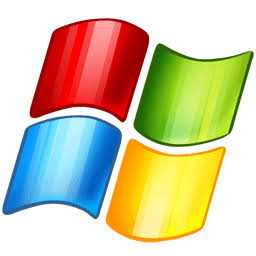I’m bored and want to practice my Rust skills. I am the creator of open-tv. If you have any idea for a linux desktop app, even if it seems quite complex, I will take it.
Make an app that is a little ASCII potted plant in your terminal and every time you type something it waters the plant and it grows
When nothing happens for too long, the plant withers and starts losing leaves. For each leaf that falls, a random file is deleted in /sbin.
Lol and maybe when the plant blooms you can have sudo back.
This reminds of a stupid filesystem pet idea I had a while ago. Running as a daemon, it walks through your filesystem and sometimes leaves traces (as files), maybe you’ll find it sleeping in your downloads folder every now and then. I thought it was a cute idea, but didnt actually think about implementing it, for obvious reasons, it could go so horribly wrong 😂
I lowkey want this, it’s like the system equivalent of the screen cat (btw does that exist but with Wayland support?)
An app that tracks how much time you spend using each app. Locally obviously. I want this information so I can see how much I should donate to each project each quarter.
This. This is a hole in the market I think.
Windows used to have a similar hidden feature that my friend used all the time to tracking his work projects, but they removed it some time ago.
This is a good idea. It could even be later expanded to a sort of “digital wellbeing” type use case with time limits or reminders on certain apps, etc…
This is a very interesting concept, and I would also like it. Would this even be possible on Wayland though? I know it should be possible on X11, but I’m unsure if the Wayland isolation would entirely prevent a usage tracking program like this from seeing what the focused window is, or seeing the total time a process has spent in the background (depending on what type of usage is being tracked).
I’m attempting to implement this a Hyprland plugin, I could adapt it to work with all Wayland based compositiors/DE’s fairly easily. It just provides the stats using a CLI command, I’m not a UI dev xD
Obsidian 1:1 open source alternative.
I would kill for this. Trying to get logseq, or any other markdown editor to play nice with an existing obsidian vault is a nightmare. And none of them are nearly as feature complete or expandable.
unrestrictive nature of Obsidian is simply top notch.
Is this sarcasm, or did you not understand their comment?
I was talking about the community extension integration, now about editors, I was easily able to switch between them. The one I was having the most difficulty with was Logseq."
LogSeq doesn’t do it for you?
nope, logseq is good for canvas and new knowledge base, but doesn’t fit for the my existing datalog requirements.
The mention of datalog confuses me. I know it as a programming language. Does it mean something else for you? And what do you mean by “canvas”? I know about painting on a canvas and similar usages as well as the verb “canvassing” for soliciting for votes.
Not the programming language, datalog here is referring to highly interlinked knowledge base,
canvas is logseq whiteboard version of Obsidian, like for mind map or creating data flow/logic diagrams.
I’d like to see a simple, dependency-free, calculator app, written in Rust, using egui. All other GUI calculator apps I’ve seen so far are unnecessarily heavy, using bloated toolkits like GTK or Qt.
This would be handy for those run a GTK/Qt-free environment, and/or those who just want a tiny calculator app (optimised for the smallest binary size) without any external dependencies. Preferably even compiled using musl, to remove any glibc dependencies - resulting in a simple, small, portable binary that can run on any distro and doesn’t even need to be installed.
Eventually, I would like to see this idea expanded to other apps - such as a simple text editor, a simple image editor, and maybe even a simple and lightweight web browser using Servo.
Jesus Christ.
I use the calculator in Ubuntu tor very simple purposes. It was crashing on me every time I opened it.
I tracked down why.
It was trying to get a foreign currency exchange rate file - which I was horrified that you’d think about even having in a calculator.
The reason that was failing? Because I had a VPN enabled.
And it wouldn’t even fail gracefully. Nope it would poof, disappear.
The fix is to disable vpn, and disable foreign currency in the preferences.
I was so pissed off. And on the next upgrade the same thing happened, which I’d forgotten all about, so went through it AGAIN!
This was in fact what prompted my search - the Gnome calculator is so horribly bloated, and yeah, it should have no business making network connections, at least not by default - this should be an opt-in behaviour.
Not to tell you you don’t need a GUI calculator program, but the only times I needed one was on screen sharing when I had to show someone else what I’m doing.
For all other cases,
pythonin console is the best calculator ever. You don’t need to learn Python to use it, and it’s most likely already installed in most systems that you use.How are Gtk and Qt bloated?
A Linux implementation of Microsoft’s Powertoys. Having all those utility features in one app would be great.
Could be a decent idea
Idea 1
I’ve been looking for a journal/to-do/checklist app that isn’t completely thumb chewing stupid. I’ve yet to find anything as good, flexible and feature complete as what you’d get on PalmOS devices in the early 2000s.
I often use my journal for brainstorming and planning, and basically the best I can do is bulleted lists. I would like a checklist section that can do things like recurring tasks, one-off tasks, daily tasks, and persistent tasks. (Daily tasks: Feed cat. Each day it puts a task with that name in the Tasks window for you to check off. Persistent tasks: Fix the kitchen drawer. This same task remains in the Tasks window until it is checked off, and then stops appearing.) I would also like “take 5 loads of yard debris to the road 0/5” and be able to click to advance it to 1/5. Marry this with a journal app so that you can keep track of progress on stuff like fitness goals or whatever.
And please. Even if it is stored as human-readable markup, please. PLEASE. Let the user edit it in rich text mode. Too many of the “journal” apps out there require you to edit in markdown mode and then you can switch to a “view” mode to see what you’ve done. Also: Don’t be that guy whose app cannot be themed. I don’t want some light mode Gnome lookin’ bullshit in the middle of my dark mode Cinnamon.
Idea 2
Do a fully local fitness tracker. Apple/Google/Samsung health apps are there primarily to invade your privacy and no one should ever use them. I get that this one is more useful as a mobile app running on a device with MEMS sensors, possibly rigged to a smart watch with biometric sensors, and there is no such thing operational in the GNU/Linux world, but still it might get some use.
Idea 3
You asked for it: Woodworking CAD. This “seems quite complex.” The best workflow I can find is in FreeCAD, which is too complex and cumbersome for the job. It’s a general purpose engineering CAD system and it’s designed to work in abstract absolutes; you can’t think in terms of “put a mortise and tenon joint here” you have to think “create a sketch on this face and constrain a rectangle to this edge with these dimensions.” And then it doesn’t give you things like automatic cut schedules, materials lists, templates. FreeCAD is allegedly extensible, it is allegedly possible to create your own workbench to add more specific features. I even tried. There is no documentation, they didn’t write down what they were doing as they were doing it, so…I’m not sure why they bother at this point.
I’ve been interested in a CAD package that works the way a woodworker works. I’ve thought about trying to implement this in the Godot game engine, but even then the project strikes me as “monumental.”
Ad. 2, have you seen https://www.zombietrackergps.net/ztgps/ ?
Item1: I would love something along these lines. Honestly, I wish I could configure Thunderbird to be my journal and reference my to-do items programmatically from inside journal entries.
Similar to your wish for first class dark mode, I want light mode to also be first class. Too many apps lately have made dark mode default and the light mode is unusable.
I’m starting to think, especially with high contrast and high brightness flat panels, having working light and dark modes are an accessibility feature. Apparently folks with bad astigmatism or some other such struggle with light text on a dark background? Me I’m just very light sensitive and a modern LED backlit monitor showing large areas of white is physically uncomfortable for me to look at.
I am one of those gifted folks that enjoy astigmatism. I have tried dark mode and dark themes many times over the years and it just doesn’t work for me. The screenshots are gorgeous tho!
How can there not be a good todo app???
Is it just that there’s no Linux one but there is mobile?
Maybe with Kotlin Multiplatform someone will get an existing mobile one running on Linux as that would be useful.
I can’t imagine it’d be too hard given a todo app doesn’t need a lot of Android specific functionality. I’m in the middle of converting my app to target desktop/ios/android and its been going very well and the tooling is improving rapidly.
That or someone might write a nice one as a starter project as Multiplatform from the start to learn it?
I’m after a thing that can work as a journaling, brainstorming and task managing tool, and I’ve yet to find the thing I’m after.
I used to work in rapid prototyping, we offered our services to the general public, and we’d get the occasional “citizen inventor” off the street with some napkin drawings or a mockup taped together out of cardboard, they’d describe their “invention” to me, and there was nothing I could do to convince them that it wouldn’t work because it would require two solid objects to pass through each other or something else against the laws of kinematics. Your imagination allows you to think about impossible shapes. And that might be what’s happening to me, that I want software that changes what it does to match what I want it to do at the time.
Also, just searched Mint’s software manager for “todo” and came up with this:
TodoList: To-Do List & Tasks. Does not function without creating an account with…someone. Worthless.
Gnome-todo Like most Gnome applications, absolutely barebones, nowhere near enough features. Is also apparently known as “Endeavour”. I’m guessing there was a backlash to giving software cute but not particularly descriptive names (like gnome’s PGP keyring tool being named Seahorse? For some reason?) and so at some point they changed the names in some but not all places so the namespaces are nasal fucked. Great, thanks Gnome.
Getting Things GNOME! Hey, something that bears Gnome’s name that isn’t below minimum viable. Has a kind of Trello vibe, and if I were ONLY building checklists for things this might do but I"m also looking for note taking/journaling/brainstorming and this isn’t it.
OpenToDoList Has a few of the features I’m looking for, but the UI is baby punching terrible. Lots of icons that aren’t obvious what they’re for with no tool tips and…it’s just combative, it’s trying really hard to be a pain.
Sleek So apparently there is a thing called a “todo.txt syntax” which is a plaintext format for arranging a todo list for cyborgs, and someone wrote a baby punching terrible GUI front end for it. A note for todo list app developers: When you click the little circle to check off an item, it should become checked off, not wait until you refresh the view in some other way like change to a different tab.
Adventure List Launches to a blank white window with a “Sign in with Google” button in the middle and no other controls. Worthless.
That seems to be it; lots of other stuff in here that doesn’t seem relevant.
I mentioned PalmOS I think. Old PalmOS devices came with some default organization apps like a to-do list and a notes app and a calendar/clock and a contacts list, all burned into ROM. But really it was more like different facets of the same app; you could make a to-do list and then put it in your calendar, etc. It all worked together in a surprisingly seamless way I’ve yet to find since.
Just saw your edit. I think I got a better idea of what you meant now with what PalmOS had. Such a shame about requiring an account to use the apps that are available. I get why they might do it if you want to share data across devices / platforms, but if you only want it locally and you’re okay with that, they should let you make that choice, especially for desktop apps.
It should also be common or required practice to make note of “Google account required” or something in the app’s description.
I’d greatly appreciate a “requires account” on app stores.
Especially on something like Flathub and especially for apps that can plausibly run locally. Like, I kinda know beforehand I’ll need an account with Discord to use the Discord app, because it’s primarily for communicating with other people. But a todo app? Dafuq does that need the internet for?
So what do you really want when you say journaling your peogess.
Is that something like
Recurring Fitness Run 5k 2 times a week.
As you check it off for number one, it prompts you to leave a note about it? And maybe you can see all your notes by category or chronologically?
Or is the journaling a completely separate thing? I can see how the two might not be done as separate things as you’re really getting into 2 wholly different apps.
As I look through Flathub, maybe KOrganizer is the closest thing to what I’m looking for, although it’s got KDE’s disease of being hideously overcrowded with every possible feature.
I think what I’m after is somewhere between KOrganizer and RedNotebook. I currently use RedNotebook to keep my journal, which in my case takes the form of talking about my day, what I did, what I’m thinking, and sometimes what I’m planning. It has no todo list functionality, but I can use it as a sort of note to self thing, it has a search function that allows me to easily look back. I almost always have it open and running on my computer.
imagine RedNotebook, but with some todo and checklist functionality so that I get today’s page, there’s a blank page for a journal entry so I can record what I did today, and maybe a separate side pane for daily tasks, maybe several panes stacked vertically for “regularly scheduled” where daily stuff like “change cat’s water dish” or weekly stuff like “garbage day” or monthly stuff like “water bill due” could pop up, and it would serve not only as a reminder to do those things, but a record of having done them. And maybe another pane for ongoing stuff, like…say I want to list all the things I want to build in the wood shop this summer; this might not be time based but just a running checklist. It would be kind of cool to be able to look back at that and see when things were added, checked off, or removed.
Lifeograph might be designed for this but 1. damn if I can figure out how it works and 2. it won’t stop shining bright white rectangles at me.
Looks like Lifeograph has a 3.0 release candiate which is brand new last month. Maybe they’ve have made things simpler and added a better theme?
The world needs the ability to sync freetube and newpipe. It’s the missing link for both Apps, to be usable from home, to out and about
I agree, but I think something is already in the works, I’ll check and probably make something practical to sync the two. It’s not really a new app that’s needed but a feature integrated into freetube/newpipe
Here’s a thread that sort of just… finishes nowhere.
Afaik, there is no app to very easily generate GIFs.
- select images
- select duration
- select quality / size
- generate gif (avif?)
plus:
- optimized for smartphones
There is switcheroo which makes image conversion easily. It converts to gif as well but only 1 image to 1 gif, not 2 images to 1 gif.
It should be straight forward since image magick contains all neccessary commands for gif creation
Do you know what really doesn’t exist?
A pure, HTML only, WYSIWYG text editor. Every text editor out there is either XML, JSON or Markdown based. HTML is the most widely adopted standard ever and is the best for storing content long term. People could write CSS themes, you could even add paged media support.
NVU, Dreamweaver were tried to be like this. Only thing that wysiwyg’ing HTML isn’t that easy as one might think, especially nowadays where thousands of web css frameworks exists and every structuring is done via divs.
You could make your own framework, or select/import one you like, but then the app will have way too much parameter, which needs to be configured by the user. It would be a really neat power tool, though.
ps.: Funny thing I was just thinking about wysiwyg editors in the recent days 😅
Nono. It’s just a Writer. Like, Word, or Google Docs. It’s easy to do. Like all those Markdown editors, but HTML. For notes, book writing, etc.
GUI app to create/edit/config Samba shares.
Good idea, after having just spent quite a while setting mine and troubleshooting them (first time samba user).
I haven’t used the tool below, but I’ve seen it be recommended. Might it be kind of what you’re looking for?
What about a fully featured PDF tool (page deletion, blank page instertion, OCR, edition, conversion, cropping, reorientation, etc…). This is a very missing feature of the linux world, we always have to jump from one software to another. An alternative would be to build the plugins of Okular to allow to make these operations.
Have you checked out Stirling-PDF?
a 🔥blazingly fast🔥 voxel based open world RPG with soulslike and medroidvania elements
Or maybe a 100% science-based dragon MMO?
@Fredol a simple, clean-looking GTK4 client for Syncthing.
Obsidian clone thats better than logseq
A gtk app for YouTube and/or twitch intended for media PCs would be neat, with controller/remote support and ui optimization for air mice.
I don’t like the ux of kodi very much and trying to get it to play YouTube has been a nightmare 😅 a simple app with a decent user interface would be very welcome















